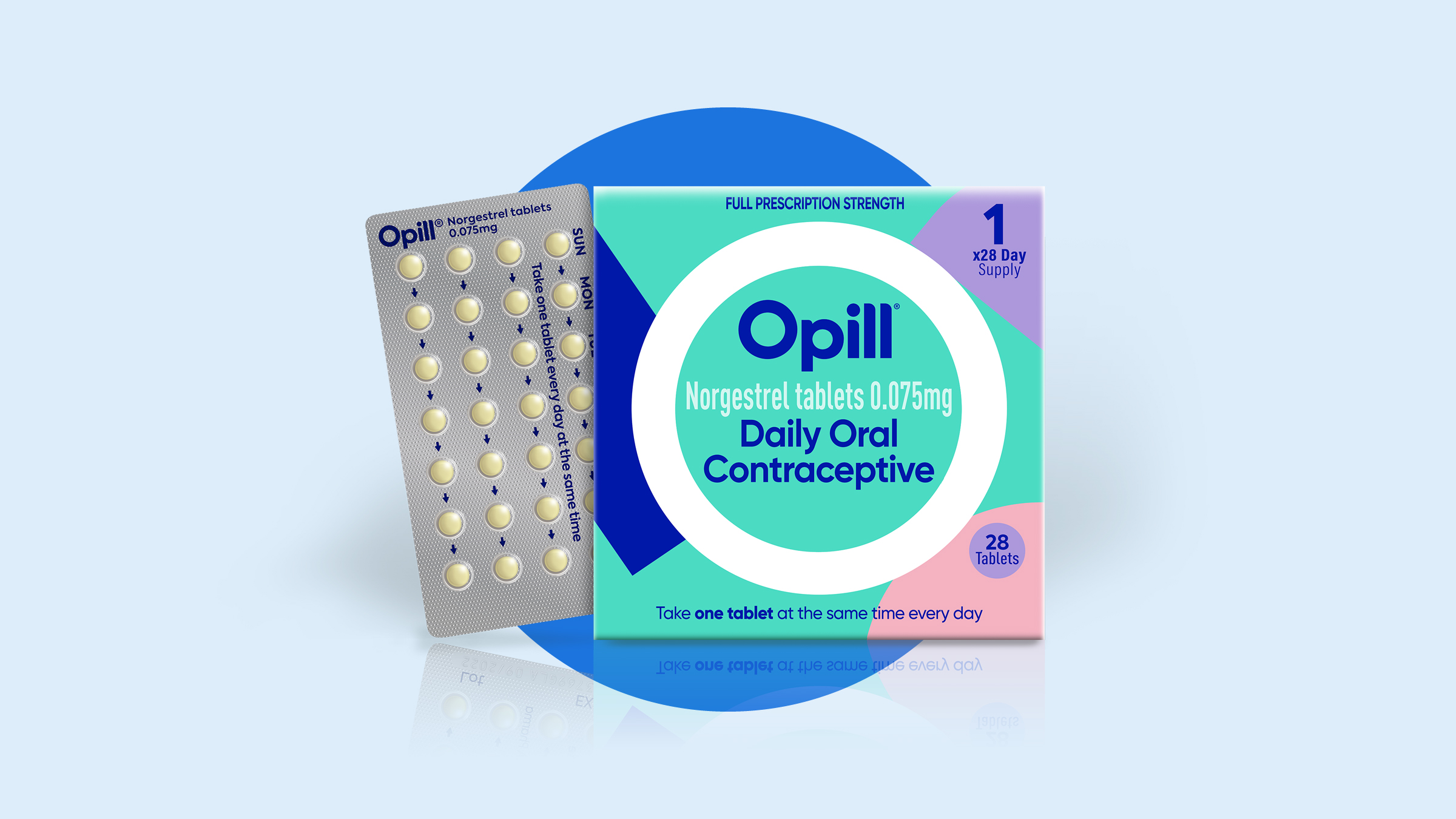The Future Of Reproductive Rights: The Role Of OTC Birth Control Post-Roe

Table of Contents
Increased Access to Birth Control: A Game Changer for Reproductive Freedom?
The availability of over-the-counter birth control could revolutionize access to contraception, particularly for underserved populations. Currently, many face significant barriers to accessing birth control, including: financial limitations, geographical constraints (especially in rural areas), lack of transportation, and inconvenient clinic hours. OTC birth control has the potential to overcome many of these obstacles.
- Reduced cost barriers: Eliminating prescription costs and doctor's visit fees can make birth control significantly more affordable.
- Elimination of doctor visits and prescription requirements: This removes a major hurdle for many, particularly those facing scheduling challenges or discomfort seeking medical care.
- Improved privacy: Purchasing birth control discreetly from a pharmacy offers greater privacy than a doctor's appointment.
- Potential increase in consistent contraceptive use: Easier access could lead to more consistent use, resulting in fewer unintended pregnancies.
However, challenges remain. Will insurance companies continue to cover OTC birth control? Will the price remain affordable for everyone, or will it create disparities based on socioeconomic status? These questions need careful consideration as we move towards wider availability.
The Impact on Unintended Pregnancies and Abortion Rates
Increased access to birth control, particularly OTC birth control, is strongly correlated with decreased rates of unintended pregnancies. Numerous studies have demonstrated this link. A reduction in unintended pregnancies, in turn, could lead to a decline in abortion rates.
- Statistical evidence: Research consistently shows a strong correlation between improved access to contraception and lower abortion rates.
- Limitations of correlation: While correlation doesn't equal causation, the evidence strongly suggests a significant relationship. Other factors, like comprehensive sex education, also play a role.
- Comprehensive sex education: Access to accurate and comprehensive sex education is crucial, complementing the increased availability of OTC birth control.
Counterarguments exist. Some argue that OTC birth control won't significantly impact abortion rates, while others raise ethical concerns. A nuanced approach acknowledging both the potential benefits and limitations is necessary. The ethical considerations surrounding reproductive choice must remain central to the discussion.
Addressing Misinformation and Ensuring Safe Use of OTC Birth Control
Ensuring the safe and effective use of OTC birth control requires addressing potential misinformation and providing accurate information to the public.
- Public health campaigns: Targeted public health campaigns are crucial for educating individuals about different birth control methods, their effectiveness, and potential side effects.
- Clear labeling and instructions: Clear and accessible labeling and instructions on OTC birth control packaging are paramount.
- Combating online misinformation: The proliferation of online misinformation necessitates a proactive approach to promoting reliable sources of information and media literacy.
Despite the over-the-counter availability, healthcare providers will still play a vital role in providing guidance, support, and addressing individual needs and concerns. They can offer personalized advice and ensure patients understand the most appropriate method for them.
Legal and Policy Implications of OTC Birth Control Post-Roe
The legal landscape surrounding access to birth control is complex, varying significantly across states. The availability of OTC birth control will undoubtedly face legal challenges.
- Potential legal challenges: Anti-abortion groups may challenge the legality of OTC birth control, arguing against increased access to contraception.
- State-level variations: Existing state laws concerning access to reproductive healthcare create a patchwork of regulations that impact the accessibility of OTC birth control.
- FDA regulation: The FDA's role in regulating the safety and efficacy of OTC birth control is crucial.
Future legislation will significantly impact the accessibility of over-the-counter contraception. Continued advocacy and engagement in the political process are vital to ensure that policies support widespread access.
Conclusion: Securing Reproductive Rights Through Accessible Birth Control
Over-the-counter birth control holds significant potential to improve access to reproductive healthcare and reduce unintended pregnancies in a post-Roe America. While challenges related to cost, insurance coverage, misinformation, and state-level regulations exist, the benefits of increased access are undeniable. Securing reproductive rights requires continued advocacy for policies that expand access to affordable and accessible over-the-counter birth control. Learn more about reproductive health resources, contact your representatives, and support organizations working to advance reproductive health access. Let’s champion the right to accessible over-the-counter birth control as a fundamental component of comprehensive reproductive healthcare.

Featured Posts
-
 Esir Ailelerinin Israil Meclisi Ndeki Protestosu Guevenlik Goerevlileriyle Catisma
May 02, 2025
Esir Ailelerinin Israil Meclisi Ndeki Protestosu Guevenlik Goerevlileriyle Catisma
May 02, 2025 -
 Kme Vedjegy A Kivalo Minoseg Jelkepe A Mecsek Baromfi Kft Termekein
May 02, 2025
Kme Vedjegy A Kivalo Minoseg Jelkepe A Mecsek Baromfi Kft Termekein
May 02, 2025 -
 Hudsons Bay Brand And Charter Toronto Firm Faces Tough Competition
May 02, 2025
Hudsons Bay Brand And Charter Toronto Firm Faces Tough Competition
May 02, 2025 -
 Fortnite Update Problems Chapter 6 Season 2 Launch Postponed
May 02, 2025
Fortnite Update Problems Chapter 6 Season 2 Launch Postponed
May 02, 2025 -
 Play Station Portal Cloud Streaming A Growing Catalog Of Classic Games
May 02, 2025
Play Station Portal Cloud Streaming A Growing Catalog Of Classic Games
May 02, 2025
Latest Posts
-
 Selena Gomezs 80s Inspired High Waisted Suit A Modern Take On Classic Style
May 02, 2025
Selena Gomezs 80s Inspired High Waisted Suit A Modern Take On Classic Style
May 02, 2025 -
 Selena Gomezs High Waisted Suit Reviving 80s Office Style
May 02, 2025
Selena Gomezs High Waisted Suit Reviving 80s Office Style
May 02, 2025 -
 Selena Gomezs Sophisticated High Waisted Suit A Retro Workplace Style Icon
May 02, 2025
Selena Gomezs Sophisticated High Waisted Suit A Retro Workplace Style Icon
May 02, 2025 -
 Selena Gomezs High Waisted Power Suit An 80s Office Inspiration
May 02, 2025
Selena Gomezs High Waisted Power Suit An 80s Office Inspiration
May 02, 2025 -
 Chaos On Bbcs Celebrity Traitors High Profile Siblings Withdraw
May 02, 2025
Chaos On Bbcs Celebrity Traitors High Profile Siblings Withdraw
May 02, 2025
